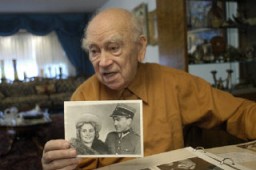You searched for: Auschwitz
<< Previous | Displaying results 861-870 of 878 for "Auschwitz" | Next >>
-
Sam Itzkowitz describes the first moments of liberation
Oral HistoryThe Germans invaded Poland in September 1939. When Makow was occupied, Sam fled to Soviet territory. He returned to Makow for provisions, but was forced to remain in the ghetto. In 1942, he was deported to Auschwitz. As the Soviet army advanced in 1944, Sam and other prisoners were sent to camps in Germany. The inmates were put on a death march early in 1945. American forces liberated Sam after he escaped during a bombing raid.
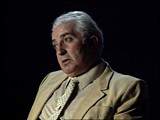
-
Miriam Peleg describes why she joined Żegota
Oral HistoryMiriam Peleg (1913–1996) was a member of the Council for Aid to Jews, codenamed “Żegota.” Żegota was a clandestine rescue organization of Poles and Jews in German-occupied Poland. Supported by the Polish government-in-exile, Żegota coordinated efforts to save Jews from Nazi persecution and murder. It operated from 1942 to 1945. Born Maria Hochberg, Miriam was from a Polish-Jewish family. She grew up in a small town about 70 miles east of Kraków. As early as the summer of 1940, Miriam obtained…
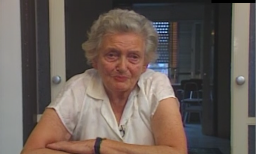
-
Wilek (William) Loew describes forced labor in Lvov
Oral HistoryWilek was the son of Jewish parents living in the southeastern Polish town of Lvov. His family owned and operated a winery that had been in family hands since 1870. Wilek's father died of a heart attack in 1929. Wilek entered secondary school in 1939. Soon after he began school, World War II began with the German invasion of Poland. Lvov was in the part of eastern Poland annexed by the Soviet Union. Although the Soviets took over Wilek's home and the family business, Wilek was able to continue his…
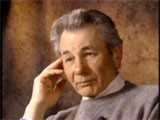
-
Wilek (William) Loew describes refugees from western Poland after their arrival in Soviet-occupied Lvov
Oral HistoryWilek was the son of Jewish parents living in the southeastern Polish town of Lvov. His family owned and operated a winery that had been in family hands since 1870. Wilek's father died of a heart attack in 1929. Wilek entered secondary school in 1939. Soon after he began school, World War II began with the German invasion of Poland. Lvov was in the part of eastern Poland annexed by the Soviet Union. Although the Soviets took over Wilek's home and the family business, Wilek was able to continue his…
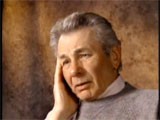
-
Wilek (William) Loew describes the Soviet occupation of Lvov in 1939
Oral HistoryWilek was the son of Jewish parents living in the southeastern Polish town of Lvov. His family owned and operated a winery that had been in family hands since 1870. Wilek's father died of a heart attack in 1929. Wilek entered secondary school in 1939. Soon after he began school, World War II began with the German invasion of Poland. Lvov was in the part of eastern Poland annexed by the Soviet Union. Although the Soviets took over Wilek's home and the family business, Wilek was able to continue his…
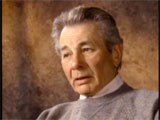
-
World War II: In Depth
ArticleGermany started World War II in Europe on September 1, 1939, by invading Poland. War would continue until 1945. Learn more about key events in the history of WWII.
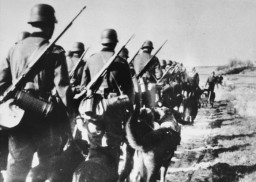
-
Trawniki
ArticleFrom July 1941-May 1944, the SS camp at Trawniki had several purposes. It is best known as the training site for auxiliary police guards used in Nazi killing centers. Learn more.
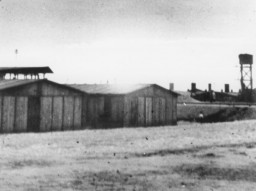
-
Franklin Delano Roosevelt
ArticleFranklin D. Roosevelt was 32nd president of the US. Learn about the domestic and international challenges FDR faced as president during World War II.
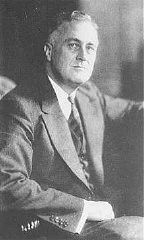
-
Assessing Guilt
ArticleAfter WWII, prosecutors faced the challenge of assessing the guilt of propagandists whose words, images, and writings had supported Nazi brutality and mass murder.
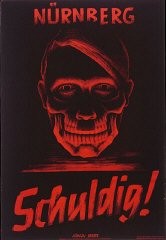
-
Life After the Holocaust: Norman Salsitz
ArticleAfter WWII and the fall of the Nazi regime, Holocaust survivors faced the daunting task of rebuilding their lives. Listen to Norman Salsitz's story.
